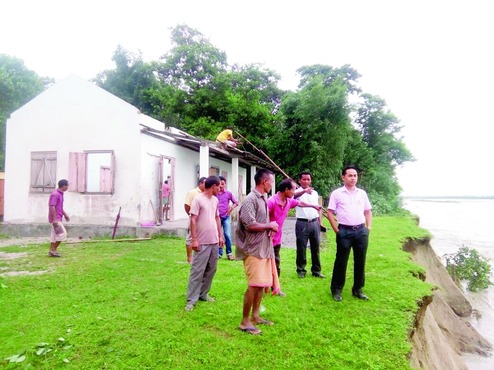
ROOM FOR MORE?
Guwahati, Oct. 11: The All Assam Private Schools Association (AAPSA) has extended its moral support to the nationwide protest of National Independent Schools Association (Nisa) tomorrow.
Different school associations of the country that work closely with Nisa will mark tomorrow as Black Day in protest against various government policies and practices that are allegedly creating hurdles in the functioning of private schools leading to closure for many of them.
Nisa's protest is against 'faulty' implementation of the Right to Education Act, according to which private schools need to reserve 25 per cent of their seats in primary section for poor students of nearby areas. The expenditure is later reimbursed by the respective state governments.
According to the association, many state governments have not reimbursed the money and the amount of reimbursement they have determined against per student is very low. The association also says low budget private schools are unable to meet the infrastructure criteria according to the RTE norms.
Reservation for poor students in the about 12,000 private schools in Assam has not begun as the state government is yet to finalise the expenditure for each child.
AAPSA president Pankaj Das said the government policies are the result of certain beliefs based on 'incorrect information and narratives' on topics like 'mushrooming growth' of private schools, their high fee and infrastructure conditions.
'The number of private schools has risen solely because of the fall in the learning outcome levels of government schools. If the quality of government schools improves, the number of private schools will drop,' Das said.
'It is also a wrong perception that all private schools charge high fees. Out of approximately 12,000 private schools in Assam, less than 1 per cent charges over Rs 50,000 per annum per student. The overwhelming majority charges less than Rs 15,000 per annum per student. The average fees per student a year in 2014-15 in the state was Rs 10,004,' he said.
Das said if low-cost schools are to invest heavily in infrastructure, the fees will increase, which will hurt students from financially weak families.
He said the government may assist the whole school education scenario by funding students directly through school vouchers as is being done through direct benefit transfer for many government programmes.
'We hope the governments will recognise these issues and take steps to improve the learning levels of our children,' he said.










